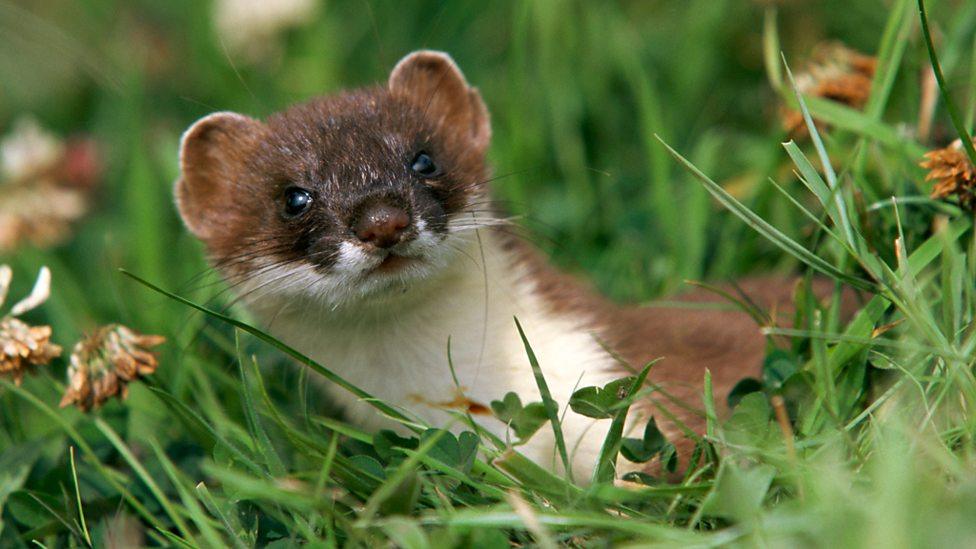Stoat detection dogs to target 'high risk' Orkney islands
- Published
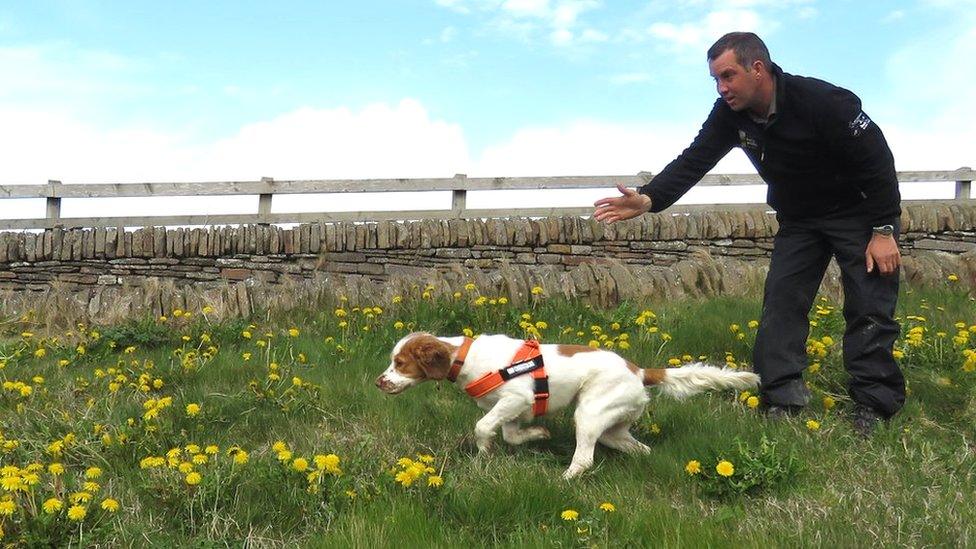
Scout is part of the specially-trained team
A trio of stoat-detection dogs have arrived in Orkney in the latest phase of an eradication project.
Stoats are common in parts of mainland Scotland, but only started appearing in Orkney in 2010.
The Orkney Native Wildlife Project was launched as the animals are said to pose a threat to important wildlife.
Sprocker spaniel Scout, labrador Spud and English springer spaniel Thorn have been specially trained to indicate the scent of stoats to their handlers.
They are part of an eradication project, but the dogs themselves will not attempt to catch any stoats.
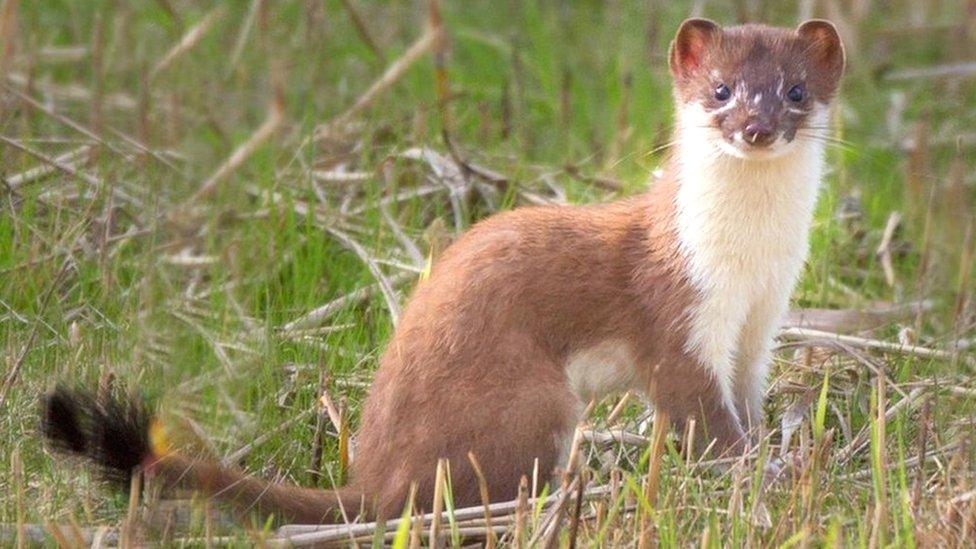
Stoats started appearing in Orkney in 2010
The trio arrived at the end of April, and have spent the last two weeks undergoing intensive training.
They have been matched with handlers who they will live with, as the bond is said to be critical to them being an effective team.
The three new pairings are now ready to begin their role in what is said to be the world's largest stoat eradication project.
They will regularly search "high-risk" islands close to the Orkney mainland for signs of stoats.
These are islands that are currently stoat-free, but within a swimmable distance of islands where stoats are widespread.
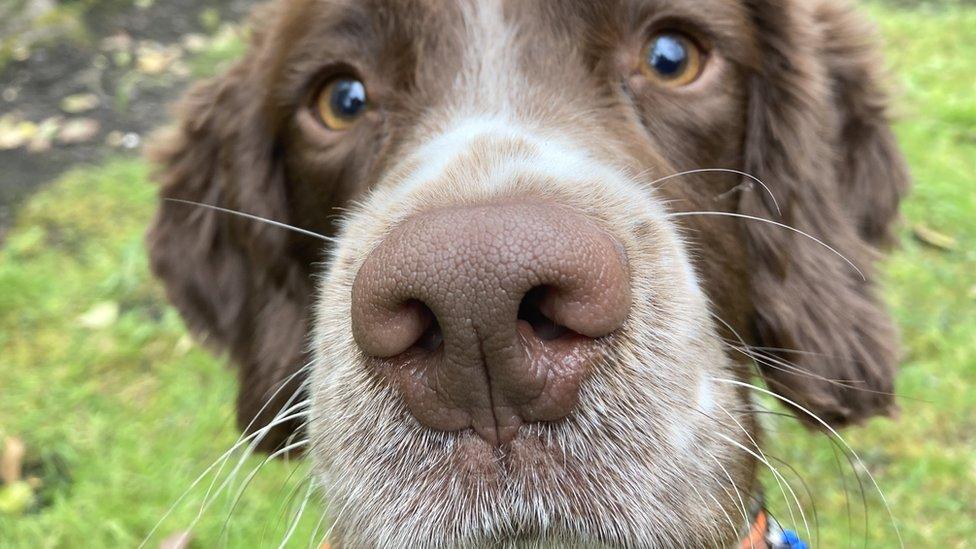
Thorn is one of the dogs involved
The most northerly of Orkney's islands may be far enough away to have an effective water barrier, but islands such as Hoy, Shapinsay, Rousay, and Flotta are within reach of stoats.
The Orkney Native Wildlife Project was given the go-ahead and awarded £6m in funding in 2018.
That same year, Macca the fox terrier arrived in Orkney after being flown over from New Zealand. He spent several months helping with the eradication efforts.
Chris Bell, the project's biosecurity officer, said the arrival of Scout, Spud and Thorn would "completely revolutionise our ability to maintain island biosecurity".
"Biosecurity measures are essential to prevent stoats spreading from the Orkney mainland to other islands, putting more native wildlife at risk, and making the challenge to eradicate stoats even greater," he said.
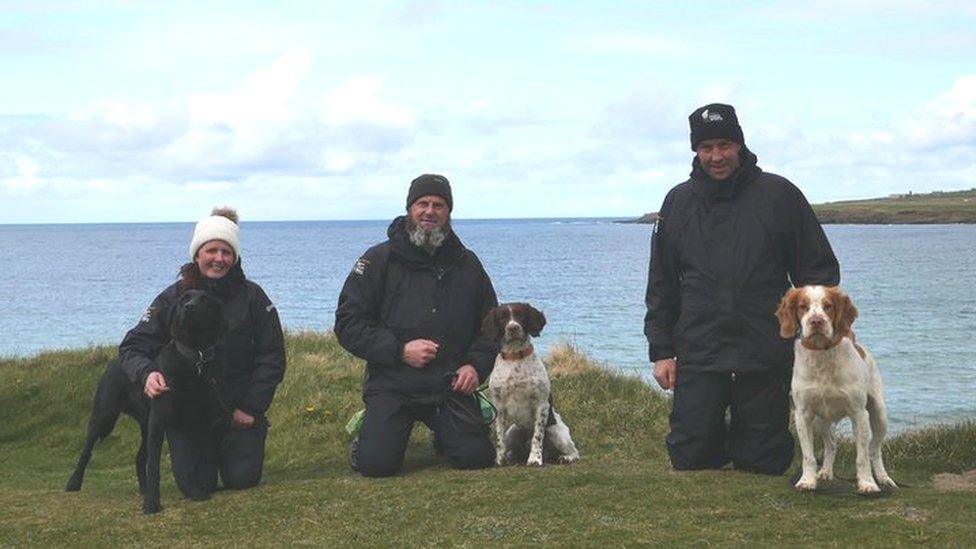
The dogs and handlers are now getting their detection work under way
Frank Holmes, from canine trainers Kyrus, said: "It has been a privilege to have been given the opportunity to train these three stoat detection dogs and be a part of this project.
"Although it has been a long journey getting to this stage, meeting the handlers and seeing the bond they have started to develop with each dog has been worth the wait."
Grant Blackley, one of the dog handlers, added: "After the year long delay due to Covid-19 it has been wonderful to finally meet and start bonding with the dogs."
The Orkney Native Wildlife Project is a partnership between RSPB Scotland, NatureScot and Orkney Islands Council.
Native wildlife particularly at threat from stoats are said to be the Orkney vole, hen harrier, short-eared owl and other ground nesting birds such as red-throated divers, Arctic terns and curlews.
Related topics
- Published28 May 2019
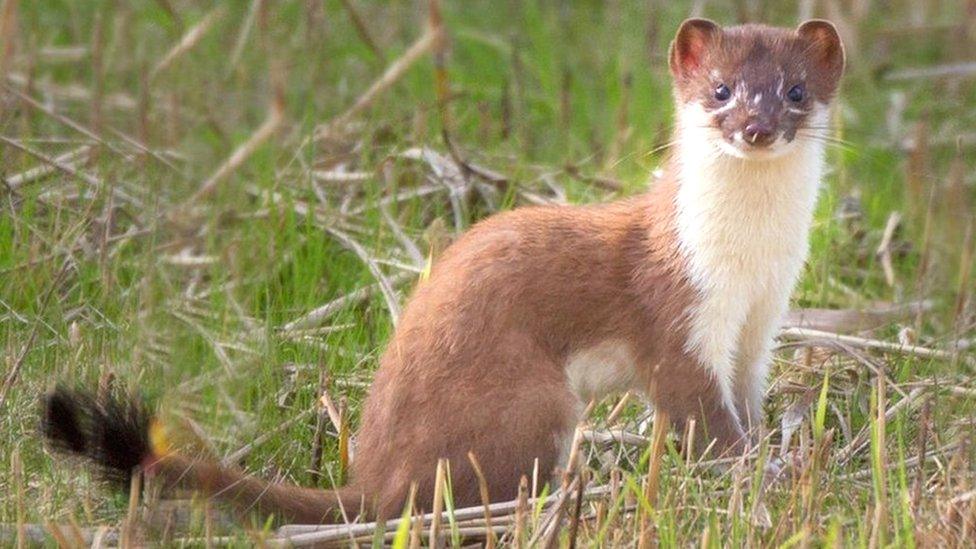
- Published25 October 2018
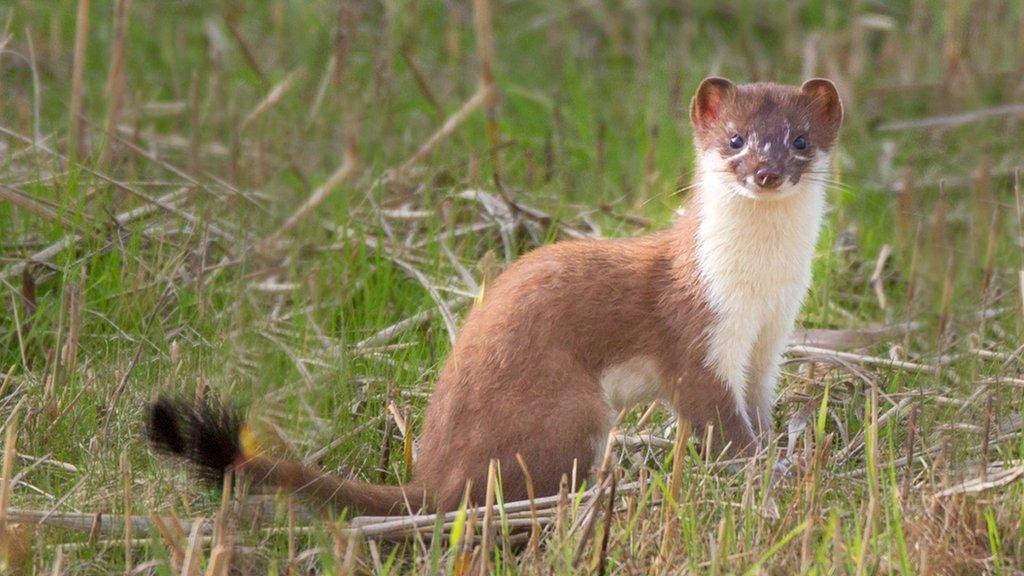
- Published5 September 2017
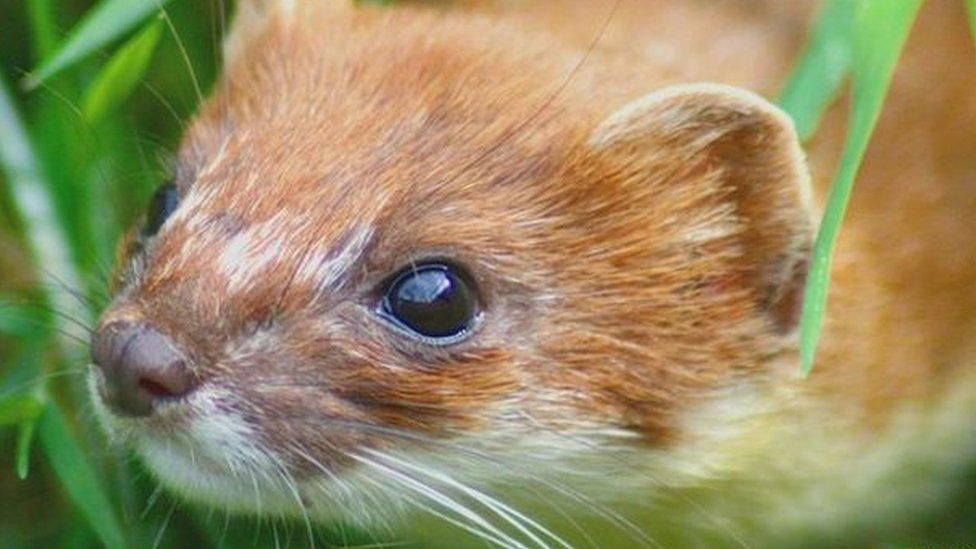
- Published5 June 2017

- Published2 May 2017
